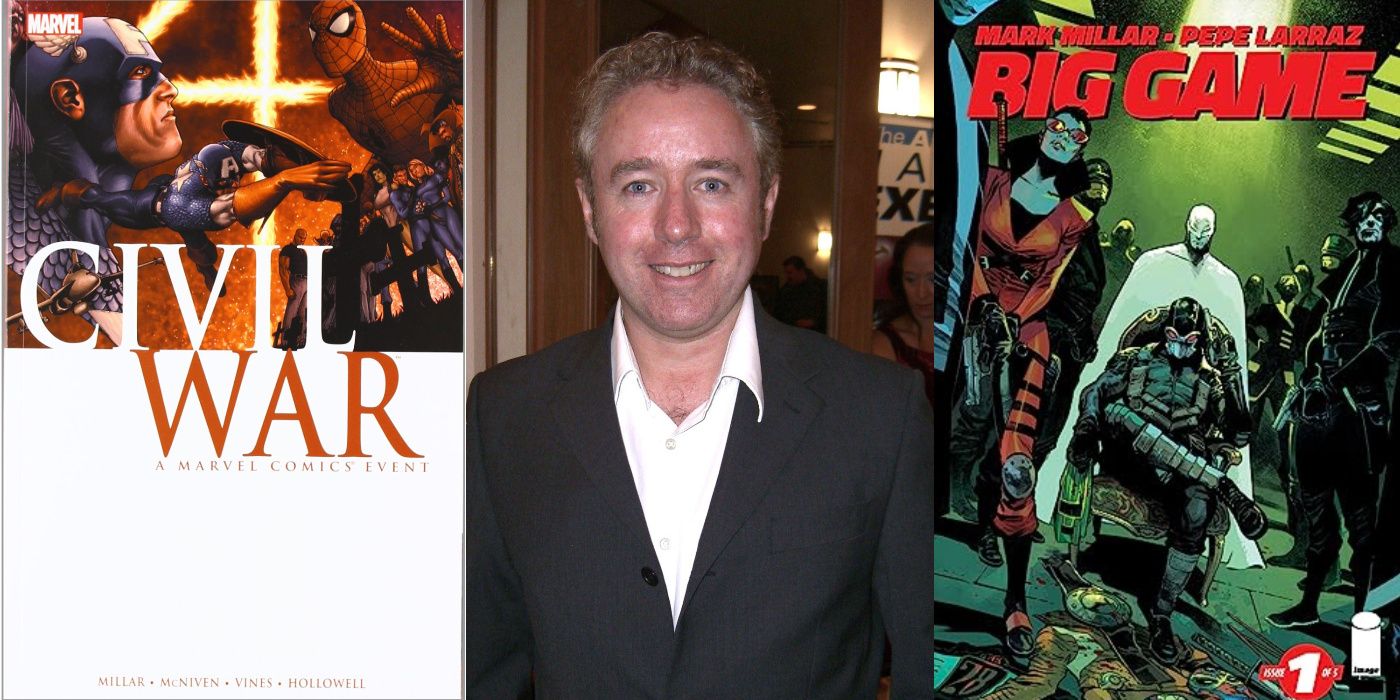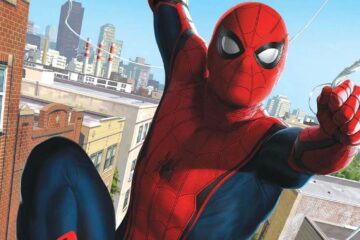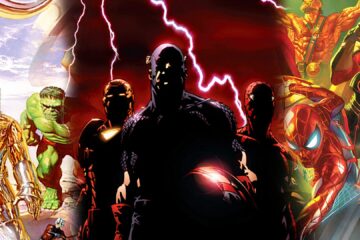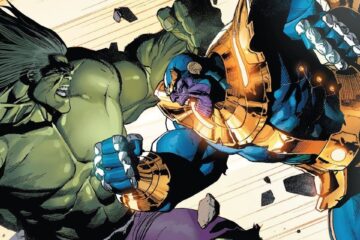Mainstream superhero comics in the 21st century faced some pretty major roadblocks. The ’90s had been disastrous for the Big Two, with Marvel especially feeling the bite. Marvel and DC kicked off the new millennium and immediately began changing everything. Around this time, a young Scottish comic writer, the protégé of Grant Morrison, would burst onto the scene with The Authority, taking the series over from writer Warren Ellis: Mark Millar. Millar’s work on The Authority with Frank Quitely wowed readers and the comic press and there was much more to come.Millar soon became one of Marvel’s most important architects, writing Ultimate X-Men, The Ultimates, and solo books like Wolverine (Vol. 3) or Spider-Man, and would cement his place in the pantheon of the company with Civil War. Millar helped launch Marvel into the event cycle and the successes of the mid-’00s. Eventually, he would move away from the biggest superhero comic company and create hit after indie hit. He soon sold all of that to Netflix and has since been cracking out an entire universe. His quick rise to superstardom has certainly made him influential, but his choices keep him quite the controversial icon.Mark Millar was inspired by a meeting with Alan Moore to become a comic creator. Millar would then interview a newly returned to comics Grant Morrison, who told Morrison he wanted to be a writer and artist, but the elder Scottish writer told Millar to focus on one. Millar decided on writing and soon sold his first comic, Saviour. Millar got more work in the British industry, in the big-time anthologies like 2000A.D. and Crisis. Millar worked with Morrison several times during this period, and would eventually join DC Comics, co-writing Swamp Thing with Morrison, while also getting a job doing Superman Adventures, which adapted the world of Superman: The Animated Series.RELATED: Would Marvel And DC Be Better If Readers Tried Out New Titles?RELATED: Why Long Comic Book Runs Need A Comeback
Mainstream superhero comics in the 21st century faced some pretty major roadblocks. The ’90s had been disastrous for the Big Two, with Marvel especially feeling the bite. Marvel and DC kicked off the new millennium and immediately began changing everything. Around this time, a young Scottish comic writer, the protégé of Grant Morrison, would burst onto the scene with The Authority, taking the series over from writer Warren Ellis: Mark Millar. Millar’s work on The Authority with Frank Quitely wowed readers and the comic press and there was much more to come.
Millar soon became one of Marvel’s most important architects, writing Ultimate X-Men, The Ultimates, and solo books like Wolverine (Vol. 3) or Spider-Man, and would cement his place in the pantheon of the company with Civil War. Millar helped launch Marvel into the event cycle and the successes of the mid-’00s. Eventually, he would move away from the biggest superhero comic company and create hit after indie hit. He soon sold all of that to Netflix and has since been cracking out an entire universe. His quick rise to superstardom has certainly made him influential, but his choices keep him quite the controversial icon.
Mark Millar was inspired by a meeting with Alan Moore to become a comic creator. Millar would then interview a newly returned to comics Grant Morrison, who told Morrison he wanted to be a writer and artist, but the elder Scottish writer told Millar to focus on one. Millar decided on writing and soon sold his first comic, Saviour. Millar got more work in the British industry, in the big-time anthologies like 2000A.D. and Crisis. Millar worked with Morrison several times during this period, and would eventually join DC Comics, co-writing Swamp Thing with Morrison, while also getting a job doing Superman Adventures, which adapted the world of Superman: The Animated Series.
#Mark #Millar #21st #Centurys #Influential #Controversial #Writer
Note:- (Not all news on the site expresses the point of view of the site, but we transmit this news automatically and translate it through programmatic technology on the site and not from a human editor. The content is auto-generated from a syndicated feed.))



